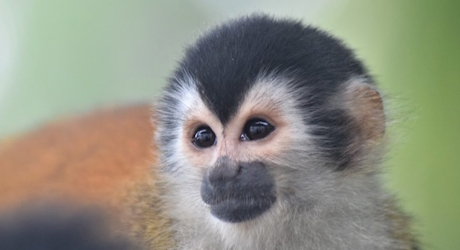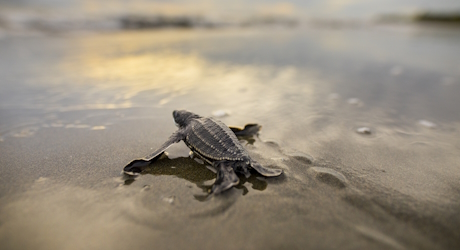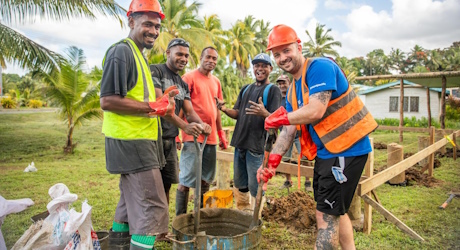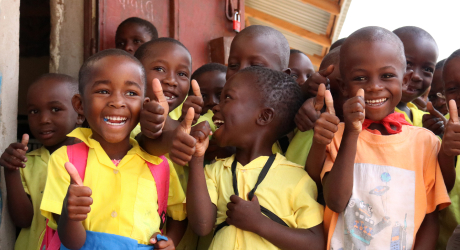Footprints Project
Since 2005, travelers like you have helped us change the world through micro-donations.
.jpg)
-
A total of
3803
Travelers
-
donated
$25001.15
(100% funded) -
to help reduce
Poverty
-
impacting
500
people -
in
Indonesia
Project Background
Sumba, an Indonesian island known for its distinct culture and renowned surf spots, grapples with entrenched issues rooted in poverty, malnutrition, and climate vulnerability.
Laboya Barat sub-district records a staggering 63% poverty rate, with an additional 20% deemed 'near poor,' vulnerable to economic and environmental shocks. This perpetuates a cycle where impoverished farmers shy away from agricultural investments due to perceived risks. Relying heavily on rainfall for farming, Sumba's agriculture suffers from unpredictable climate changes that affect rainfall patterns. Low agricultural productivity is aggravated by a lengthy eight-month dry season; the resulting reduction in food crops exacerbates poor diets, health, malnutrition, and stunting.
The island's people have relatively high stunting rates. Stunting, a result of chronic malnutrition, profoundly affects a child's future. It hampers physical and cognitive development, leading to reduced learning abilities, lower earning potential, and increased susceptibility to diseases. The cycle of poverty often persists as stunted children face diminished opportunities for growth and success.
Key Project Activities
SurfAid's ongoing NUSATANI program, now in its fourth year of operation, aims to assist families in addressing food access, malnutrition, stunting, and other health issues stemming from poor nutrition. The central focus is on maintaining year-round access o nourishing food and educating families on safe food handling and storage practices.
This Footprints project contributed directly to NUSATANI and tackled challenges faced by farmers due to changing weather patterns driven by climate change. Through the introduction of a specialised irrigation system on a demonstration farm, SurfAid equips farmers with skills to manage water during dry spells. This knowledge transfer occurs through formal sessions and informal support, ensuring effective learning. The ultimate goal is to instil enduring positive changes, driven by local stakeholders, beyond the project's conclusion.
The work that was undertaken included:
- A new demonstration farm set up with a small-scale irrigation system benefitting 706 people in a very remote, arid area
- Training sessions focusing on effective agricultural practices, covering Seeds & Planting, Land Management, Fertiliser application, and Plant Protection. These sessions successfully engaged 514 men and 192 women
- Materials developed and produced in the local language, including:
- 6 posters that covered topics such as precise fertilisation, horticultural pests and diseases, pests and diseases in rice, restrictions during pesticide application, environmentally friendly control methods, and poison assistance
- 2 videos on Good Agricultural Practices (GAP) and Good Handling Practices (GHP)
- 1 book on sustainable farming management
- 5 modules covering various aspects of farming
- A dedicated module on nutrition
- A bundle of growth monitoring card
- A nutritional calendar
- Illustrated cards for parenting
- Audio sessions for contemplation in parenting classes (in the local Lamboya language)
- Coaching and support provided in farmers' fields and gardens, covering topics they had learned at training sessions at demonstration farm
Key Project Outcomes
The small-scale irrigation system at the demonstration farm has been a game changer, as it shows that even in arid areas, continuous farming is possible, with the right investment and tools.
In the field, we are applying more than onw system; to make it easier for our beneficiaries to choose which one is most suitable for them.
From the water source, we are using two systems: solar power & hydram. The latter system seems to be preferred by our beneficiaries, because it is cheaper, while for long-term maintenance, both are similar, requiring less maintenance.
We are also applying more than one irrigation sub system: drip irrigation, water pocket and water sprinkle. The selection is adjusted to the type of commodity planted.
There were two training sessions of SSIS in Laboya Barat: How to install the SSIS and Maintenance of SSIS in the demonstration farm and small garden.
The project's activities have made a significant impact, driving positive change in the community. The training and support shared valuable knowledge which led to an increase in good agricultural practices.
- 201 targeted smallholder farmers apply new agricultural systems, storage techniques, and yields processing (up from one!)
Community Involvement
SurfAid in Indonesia embarked on a collaborative venture with the communities and local government of Laboya Barat sub-district. This partnership led to the allocation of land for a demonstration farm, involving community members in its setup and the establishment of an irrigation system. The communities played an active role in designing tailor-made training materials and contributing locally available resources, offering their time and dedication to the project.
What's next?
NUSATANI will continue for another year, implementing activities that support access to and availability of nutritious food. Workshops that enable farmers to increase the quality of their produce, including irrigation, pest management, seed preparation etc. will continue. This long-term engagement assists the community to internalise the behaviour change required. After the project’s completion, community groups and the government will manage the demonstration farms. The sustainability of this project looks good.
Traveling soon? When you buy travel insurance with us, you can make a contribution towards a cause you care about.
Get a quote






